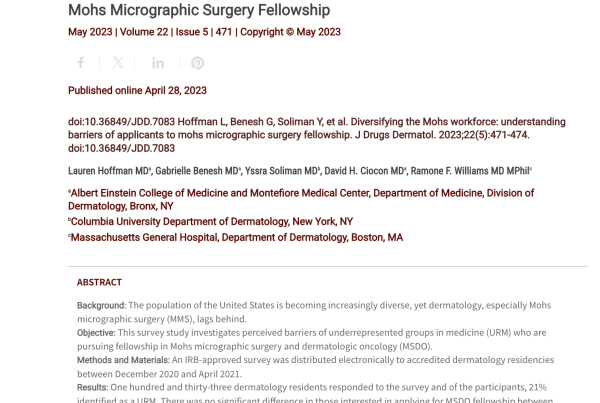Featured Article

We developed an anonymous, online survey to investigate dermatology practice characteristics relevant to LGBT patients.
Culturally Competent Care for LGBT Patients in Dermatology Clinics
Lesbian, gay, bisexual, and transgender (LGBT) patients face unique health disparities.1 Routine collection of sexual orientation and gender identity (SOGI) data can optimize patient-provider interactions.2 Gender-neutral bathrooms promote inclusivity for LGBT patients.3 There is limited data on the extent to which dermatology practices make use of such features to deliver culturally competent care to LGBT patients.
We developed an anonymous, online survey to investigate dermatology practice characteristics relevant to LGBT patients. IRB approval was obtained prior to distributing the survey via a listserv of board-certified dermatologists available on the American Academy of Dermatology’s website. Bivariate associations were explored using Monte Carlo estimation for the Fisher’s exact test and chi-square. Multivariable logistic regression was performed to evaluate the associations between provider demographic, practice variables, and likelihood of routine patient intake form use.
891 board-certified dermatologists received the survey link. 81 dermatologists completed the survey. Of providers surveyed, most were female (63%), heterosexual (80%), practiced in urban environments (53%), and in private practice settings (64%) (Table 1). Most practices reported seeing less than 5 transgender patients annually (54%), though 21% of practices reported seeing more than 10 transgender patients annually. 79% of practices surveyed reported making using of gender-neutral bathrooms. Of 71 respondents with knowledge of their intake forms, 15 (21%) reported routine collection of patient sexual orientation and 14 (20%) reported their forms asked about patients’ preferred gender pronouns, in addition to gender identity. Intake form administration did not vary significantly by provider sexual orientation (P=0.43) or practice setting (P=0.10). Of 13 dermatologists not using intake forms, 7/13 (54%) cited administrative burden, 2/13 (15%) reported intake forms were not in the scope of their practice, and 1/13 (7%) cited a lack of data for patient benefit.
You May Also Like









